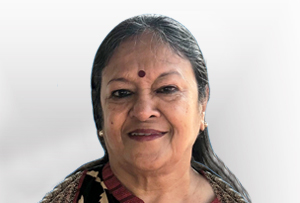One of the major problems afflicting our youth and their families in India today is addiction of various kinds; to tobacco, liquor, drugs, and of late, the Internet. The last includes the dark net, which can only be accessed through specific software, configuration, or authorisation. All the unfathomable horrors that you can think of are available on the dark net, which is, unfortunately, attracting a certain group of disillusioned, unhappy, misled and misguided youngsters, many of them in schools. On this dark net, you can buy drugs through the black market, access pornography, get information about credit and debit card numbers, bank accounts details, leaving them vulnerable to hacking and even firearms. Even suicides have been committed here.

A Rotary Action Group on Addiction Prevention (RAG-AP) has been functioning under the chairmanship of past RI president Kalyan Banerjee for the last three years, with Johan Maertens from Belgium putting in a lot of hard work in fighting substance abuse across the world, particularly Europe. The core team working under Banerjee, as detailed in the cover story, is passionately working on spreading awareness, prevention, deaddiction and rehabilitation.
As PDG Ulhas Kolhatkar (RID 3142), a paediatrician himself, says the Internet has taken precedence over the other three forms of addiction — tobacco, alcohol and drugs — among the young. While earlier doctors like him used to see 14–15-year-old students of Classes 9 or 10 with Internet addiction, gradually the age has come down to 12–13 years. “We now find that Class 7 and 8 kids are getting addicted to first tobacco, and then beer.”
As for Internet addiction, young kids, barely 5, 6 or 7, whose prowess with mobile phone technology we used to marvel at, and even show off to friends and relatives on an odd occasion, are now sadly becoming addicted to the mobile phone and the Internet. The Covid pandemic forced parents to put these dangerous and addictive instruments in the hands of their children for online classes. Even homes, where a certain age bar had been strictly put in place for mobile phone use, were forced to capitulate for the sake of their children’s education.
While the core team of this RAG is fighting substance abuse, we know that for any Rotary programme to really make an impact, it is action at the grassroots or the club level that is required. Polio eradication in India happened because Rotary clubs across the country got involved, and continue to be active in immunising children during NIDs.
As both Banerjee and PDG Deepak Purohit, another warrior in this project, put it, addiction is a silent killer and is killing many more Indians than the corona pandemic did, and we need to tackle this problem. Rotaractors and other youngsters have been involved too and have done a sterling job in creating awareness material on this colossal problem through posters, videos, etc. PDG Himanshu Thackar is liaising with the government at various levels so that a partnership can be forged between the government and Rotary and training sessions conducted for doctors, teachers, students and parents to take the substance-abuse bull by its horns. The article gives vivid tips on what concrete measures each club can implement to lessen the pain which afflicts so many families across caste, class and religious identities in India.
Rasheeda Bhagat





